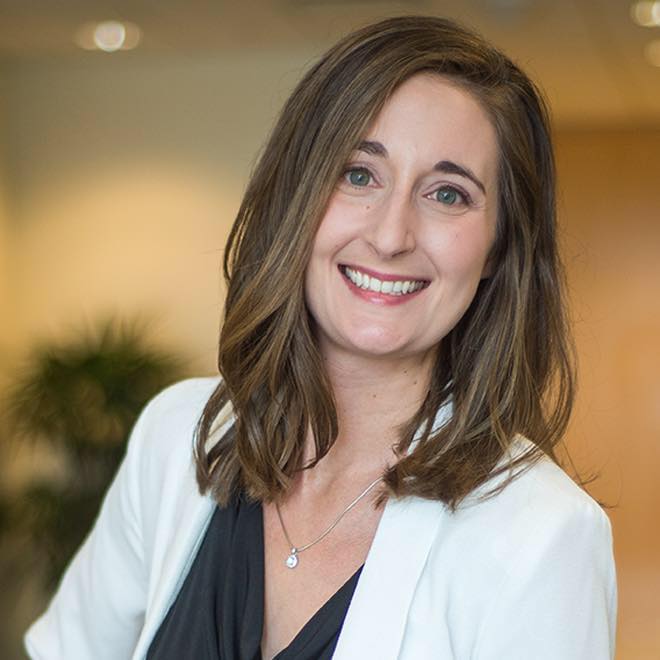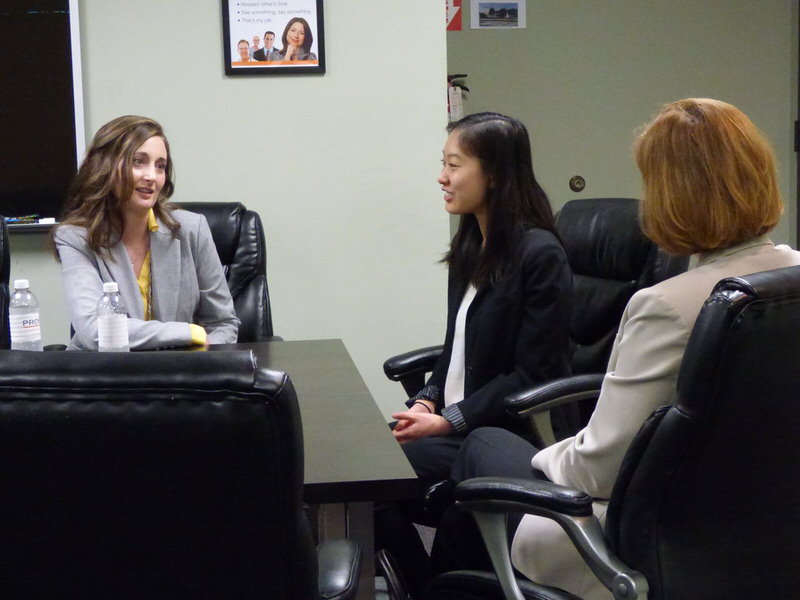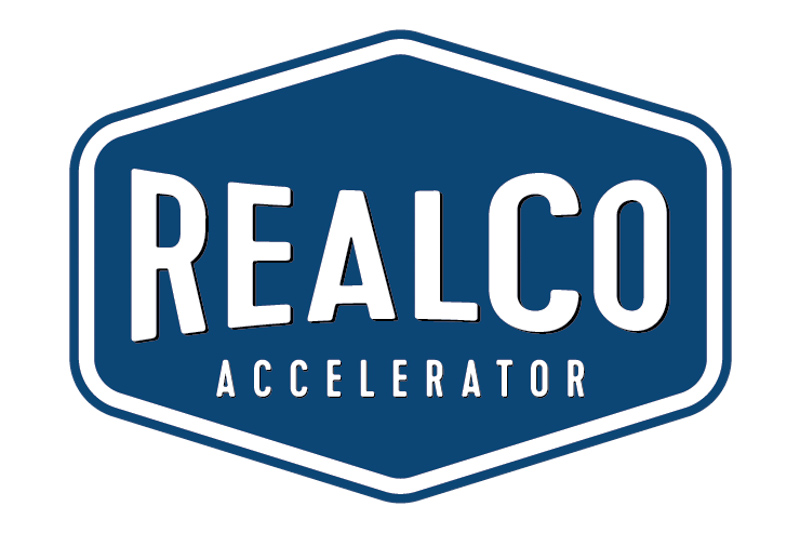How I Got My Job: Teresa Evans, Partner, RealCo Accelerator
 Dr. Teresa Evans did a Ph.D. in neurobiology before founding the Office of Workforce and Career Development at the University of Texas Health Science Center San Antonio. She has now transitioned to being a partner at RealCo Accelerator. We caught up with Teresa to ask her why she decided to move away from the bench and how she got her current job.
Dr. Teresa Evans did a Ph.D. in neurobiology before founding the Office of Workforce and Career Development at the University of Texas Health Science Center San Antonio. She has now transitioned to being a partner at RealCo Accelerator. We caught up with Teresa to ask her why she decided to move away from the bench and how she got her current job.
You did a Ph.D. in neurobiology before becoming the Director of Workforce and Career Development at the University of Texas Health Science Center San Antonio. Why did you decide not to continue in research?
About two thirds of the way through my Ph.D., I started to realize that my passion was not at the bench but was more with entrepreneurship, mentorship and leadership. I saw an opportunity to pursue those kind of things within higher education at the Health Science Center. I just wasn’t as passionate about basic research as I knew I needed to be to succeed in academia.
How did you get your job as Director of Workforce and Career Development?
A s a student, I organized and executed a lot of career development programming. I started putting together workshops which later became the foundation of the programs we have now. When I was finishing my Ph.D., I went to our Graduate Dean and said, “I’m about to graduate and I really want to keep doing these things – will you create a place for me within the Graduate School?”
s a student, I organized and executed a lot of career development programming. I started putting together workshops which later became the foundation of the programs we have now. When I was finishing my Ph.D., I went to our Graduate Dean and said, “I’m about to graduate and I really want to keep doing these things – will you create a place for me within the Graduate School?”
And he was very open and supportive to that. So, I wrote my own job description and later started up the Office of Workforce and Career Development. It’s important to take the initiative to do things as a student both inside and outside of the lab to lay the foundation for what you want to do after graduate school.
What do you do in that role?
I run a series of different programs to help students and postdocs with professional and career development.
Our flagship program is the Career Advisory Council. I have made very strategic connections with individuals who have become an extension of my knowledge and have helped our trainees transition into the careers they have chosen. Sometimes these professionals are a part of the bioscience community and sometimes they aren’t. For example, some are professionals in fields like Human Resources and can present on topics like aHow to prepare for an interview’. Everyone in our Career Advisory Council is dedicated to building the healthcare ecosystem of San Antonio as well as helping cultivate our trainees so they can succeed.
Our Career Advisors give workshops, which we host at least once a month. I don’t choose the topics – they are based on what the students are asking for. It is important to me that I bring in the speakers they are looking for not those that I am interested in.
I also often work in partnership with the Office of Postdoctoral Affairs. We partner on programs like F Troop – a fellowship grant writing course that aligns with the NIH fellowship grant cycle. It is really effective in helping our community learn how to write grants and get funding. We also do a research integrity series and a program called aEntering Mentoring’ to help trainees become effective mentors. Additionally, we facilitate yearly research and career symposia for Graduate Students and Postdoctoral Fellows.
You are now transitioning to working as a partner at the RealCo Accelerator – why make that move?
W hile building the Office of Workforce and Career Development over the past two years, I expanded my own network way beyond academia to find people who can offer our trainees advice on all sorts of careers.
hile building the Office of Workforce and Career Development over the past two years, I expanded my own network way beyond academia to find people who can offer our trainees advice on all sorts of careers.
During this time I built my own entrepreneurship and networking skills and over the last six months or so I started thinking about what is the next phase for me. There aren’t a lot of healthcare accelerators in San Antonio, but in the tech space we do have a lot of movement so my interest in entrepreneurship lead me to pursue connections with the leaders in this space.
Through twitter I became aware of a newly formed San Antonio Angel Network. I reached out to the leadership of this group and through connecting with them found that my skills in program development, nonprofit administration, and leadership were just what they were looking for. In exchange for my skills, I asked that they include me in company discussions and planning so that I too could learn about the startup space. This experience quickly exposed me to some of the best mentors in the startup ecosystem in our city. I reached out to one in particular, that I had quickly grown to respect, and requested some advice on my own career. His willingness to hear me out later resulted in the offer for my current role as his Partner at RealCo.
What will you do in that role?
I will be in charge of all the in-accelerator programming, making sure the companies have the mentors they need and working with them one-on-one to ensure that we fill their gaps toward their goal of becoming investor ready.
In addition, I will still maintain my role as Director of the Office of Career Development at UT Health San Antonio where I will continue executing events and meeting with students.
Will RealCo invest in healthcare companies?
RealCo is a startup accelerator that specializes in B2B tech companies. If that overlaps with something related to healthcare, we would consider investing.
You are also an Associate Director at the San Antonio Angel Network. What do you look to invest in there?
The San Antonio Angel Network is open to anyone, everyone, everything. We don’t lead funding rounds, but are willing to finish a round for any company that has traction in building their business and gaining funding, a strong team and a proven idea. We look at local companies here in San Antonio and companies around the globe.
T his article was originally posted on the Life Science Network and was written by Leah Cannon, a Career Advisory Council member at the Graduate School of Biomedical Sciences and the content editor for Life Science Network.
his article was originally posted on the Life Science Network and was written by Leah Cannon, a Career Advisory Council member at the Graduate School of Biomedical Sciences and the content editor for Life Science Network.
